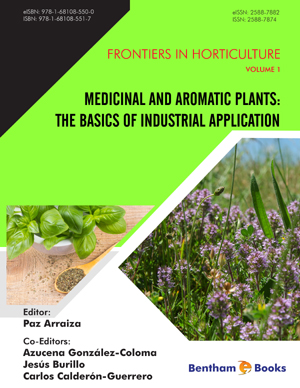Abstract
Wormwood (Artemisia absinthium L.) is a perennial plant known for its antifungal, parasitic and nematicidal effects. Its essential oil is rich in thujone which limits its industrial use due to neurotoxic effects. With the aim of domesticating plants free of thujone without sacrificing essential oil levels for use as a potential biopesticide, the study was conducted during 8 growing seasons at an experimental field located in Ejea de los Caballeros, Aragón, Spain. It compared two populations: the original population of wild plants collected in the Sierra Nevada National Park (Gr-75) and the selected population from a pre-trial in Teruel (Te-68). The trial was arranged according to a randomized block design with 3 replications. The experimental plot consisted of 6 rows of plants 20 meters long with 738 plants per population. Plants were harvested every year except for year one. The following variables were evaluated: production (in kilograms of fresh and dry biomass), essential oil obtained from steam-distilled biomass (l/ha) and plant mortality. All variables were checked annually. According to yearly averages, the Teruel population maintained a stable percentage of dry material with higher production of essential oil compared to the Granada population (39 l/ha on average). It was also apparent that essential oil production has a significant direct correlation with dry material. The result of the study is the ®Candial variety registered under Decision No EU 36714 of 27 January 2014 at the Community Plant Varieties Office.
Keywords: Artemisia absinthium L., Domestication, Experimentation, Production and variety.






















